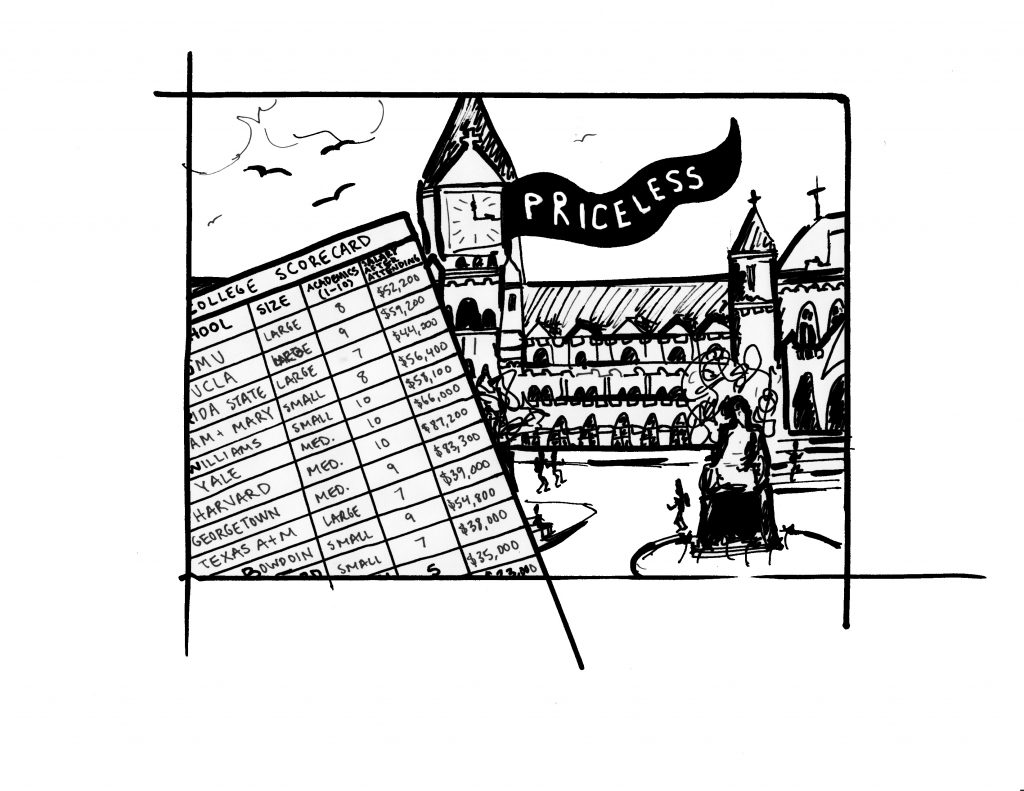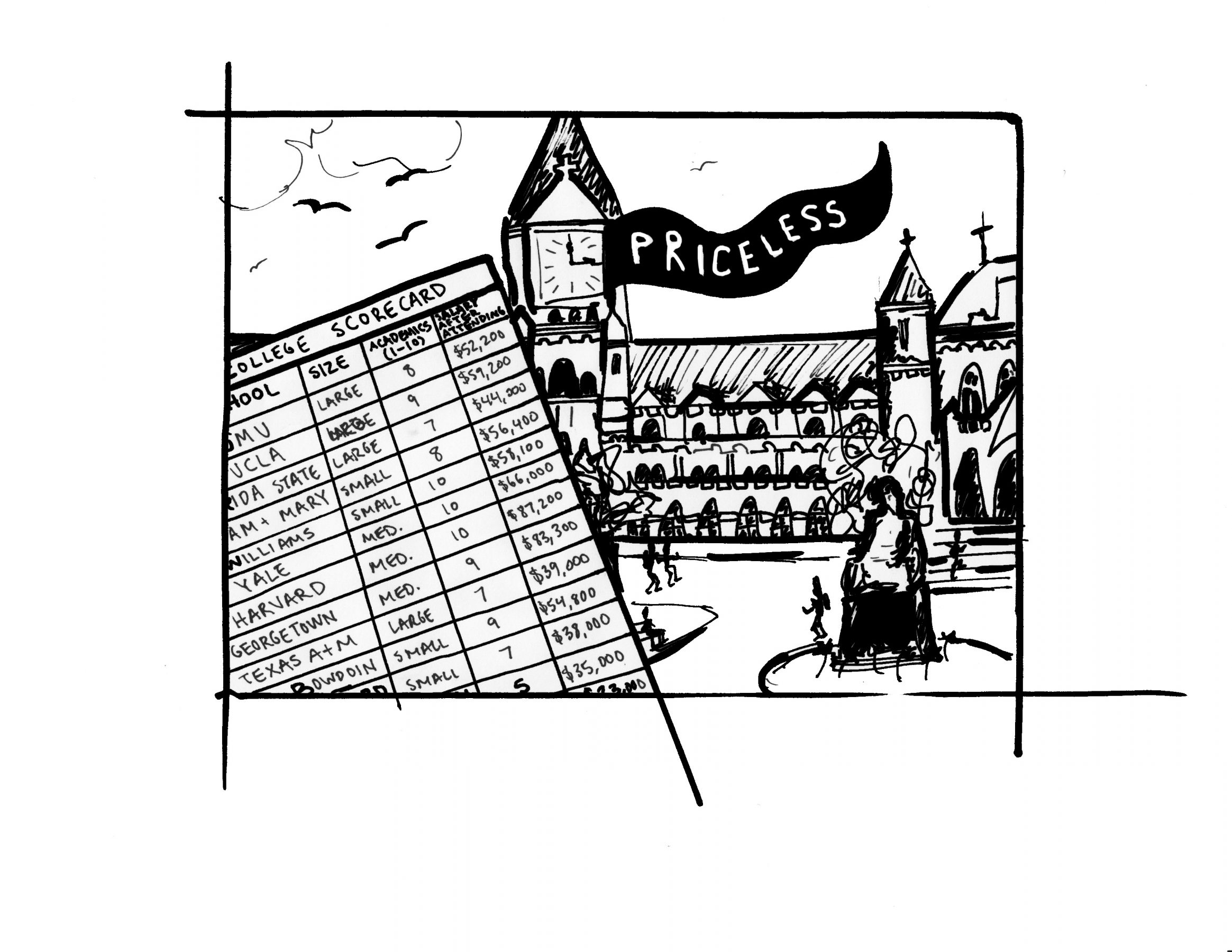
Erin Annick
We’ve long held these truths to be self-evident: America’s higher education system is broken, and U.S. News & World Report’s perennial “Best Colleges” rankings are rubbish. So it came as a relief when President Obama announced in his 2013 State of the Union address that the Department of Education (DoE) would create a data-driven “College Scorecard” for the purposes of comparing schools using a single metric: “where you can get the most bang for your educational buck.” At the time, the College Scorecard seemed like a classic two birds, one stone solution.
It wasn’t. Or, more accurately, it was never given the chance to be. What the DoE unveiled to much fanfare last month was more of a data dump than a scorecard. The Economist summed it up nicely: “Instead of assigning a grade to colleges, [the College Scorecard] merely allowed prospective students to compare colleges by three factors: graduation rate, average annual cost of attendance, and median earnings of alumni.”
What happened? Essentially, Congress and the education industry joined together to derail Obama’s initial proposal—and leading the charge was none other than Georgetown University.
There was a logic to this lobbying: attempting to neatly compare colleges and universities using a single criterion fails to capture the whole picture. There are, truth be told, too many variables to consider when assessing whether one school is better than another. This is not an apples-to-oranges argument: you can compare schools—just not with a convenient letter grade. Georgetown held a similar view. In a interview with the Voice, Associate Vice President for Federal Relations Scott Fleming commented, “I think when you start rating one institution over another, there are so many variables, and different schools are right for different people. And, so, the rating system probably wasn’t going to be able to capture that just right.”
It’s probably not a bad thing, then, that Georgetown and the larger education industry succeeded in quashing the DoE ranking system as it was originally conceived—though the intuitive appeal of a single-metric College Scorecard is hard to refute.
That said, the education industry’s lobbying efforts have not produced anything of much value for students and parents. NPR’s Cory Turner observes that “calling this a scorecard is like calling Mt. Vesuvius a hill; at best, it’s an understatement.” And, much like the infamous volcano, the College Scorecard presents a misleading façade.
Unless you’re a statistician, it’s hard to make heads or tails of the current College Scorecard. There is too much data and too little context. Sure, some of the numbers are appealing—for instance, the median post-graduation earnings for Hoyas ($83,300) places Georgetown in the top four within the category for all liberal arts schools. The data, however, are extrapolated from only students whose social security numbers are in the DoE’s registries—i.e., students who receive federal tuition aid. This means that information on roughly 50 percent of all graduates is not factored in.
As Fleming correctly pointed out, “there’s a lot more to a college education than what one might make, dollar-wise, in their job. Georgetown is proud of, and it’s inherent in who we are, creating men and women for others.” College is unquestionably an investment, but certain aspects of the higher education experience cannot be translated into monetary terms.
We’re more interested in how Georgetown helped shape the College Scorecard into what it is today. President DeGioia himself is the vice chair of the American Council on Education, an industry group that offered stiff opposition to various iterations of the College Scorecard. In this capacity, DeGioia was a lead participant in meetings at the White House and at the DoE.
We can’t know what was said in those meetings, though Fleming insists that the “conversations were not designed to say ‘don’t do this,’ but rather, ‘we want you to be sensitive to certain things as you do this’.” What we do know is that Georgetown had a role in shaping the College Scorecard. We hope they used it to the benefit of students. And we hope in the future Georgetown will use its influence to improve the Scorecard.







